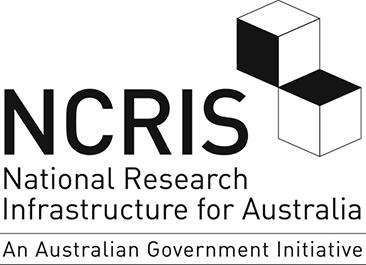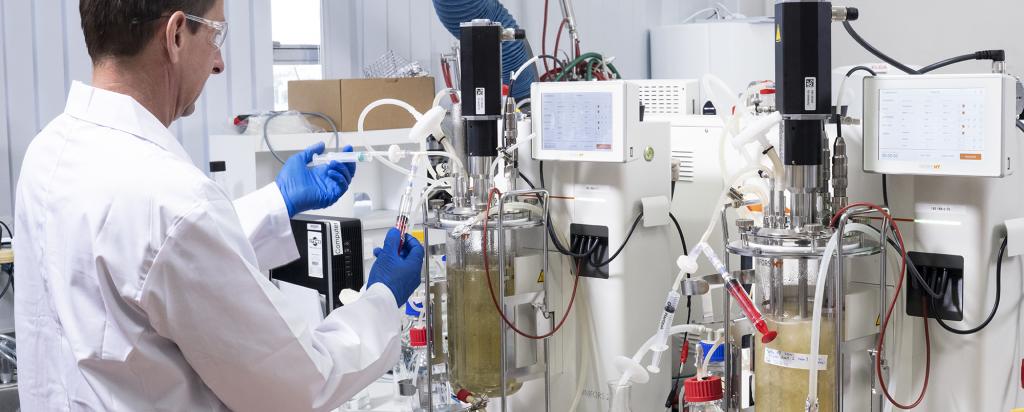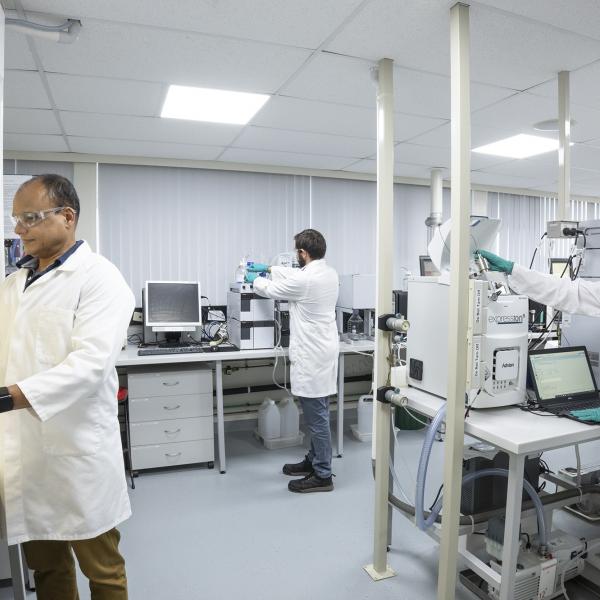

Biodeuteration
The biological deuteration laboratories at the National Deuteration Facility are staffed and equipped to undertake molecular biology, biosynthesis, purification and characterisation of deuterated (2H) and multiple labeled biomolecules (2H, 15N, 13C).
Deuterated molecules
A comprehensive product catalogue of the deuterated molecules produced by the NDF is available for download below.
The referenced media source is missing and needs to be re-embedded.
Biosynthesis
Biodeuteration of molecules is achieved through the use of heavy water (D2O) and/or 2H-labelled carbon sources in the growth medium of the host organism, dependent on the level of deuteration required. 13C and 15N medium components can be added for multiple labelling of the target biomolecule.
Recombinant expression of proteins is achieved mainly using the microbe Escherichia coli as the host organism, however a yeast host (Pichia sp) can also be employed depending on the target protein properties. Molecular biology expertise is available for insertion of gene sequences into optimal expression vectors for deuteration.
The biodeuteration laboratories are also experienced in the production of other biopolymers (e.g. chitosan, polyhydroxyalkanoates, cellulose) in bacteria, yeast and algal systems.
From transformation or seed cultures, small volume flask cultures are grown in shaker incubators and transferred to bioreactors of 1 L to 10 L capacity. The NDF has a bioreactor equipped with photosynthetic light control for algae/photosynthetic microorganism culturing and methanol monitoring and feedback control for yeast growth and protein expression induction.
Purification and characterisation
Labelled biomass is supplied or the target molecules extracted and purified via cell lysis and chromatographic separation or solvent extraction. SDS-PAGE and mass spectrometry analyses confirm the identity of expressed proteins and desired deuteration level of the target protein.
Capability Selections
The biological deuteration laboratories have a range of instruments available for purification and characterisation including:
- AKTA chromatography systems (ambient temperature or refrigerated)
- Multi-Angle Light Scattering with dynamic light scattering (Wyatt MALS-QELS)
- Spectrophotometers (including Circular Dichroism)
- Fluorescence plate reader
- Thermal analysis – Differential Scanning Calorimeter (DSC)
- LC-MS/MS (liquid chromatography-tandem mass spectrometer)
- Quartz Crystal Microbalance with Dissipation monitoring (QCM-D)
Acknowledgements
The National Deuteration Facility is partly supported by the National Collaborative Research Infrastructure Strategy – an initiative of the Australian Government.
Enabled by



